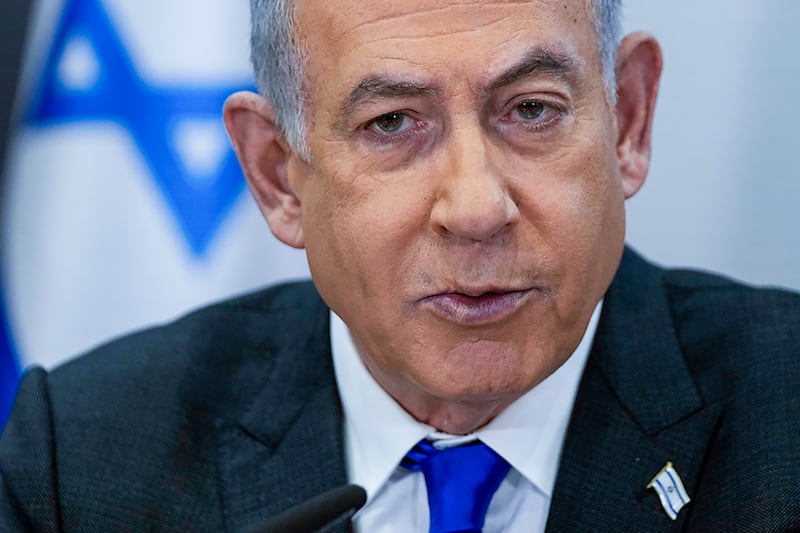Iran’s unprecedented strike on Israel, while thankfully not resulting in loss of life, represents the most dangerous moment for the Middle East for several years.
Hundreds of drones and other missiles were launched towards Israeli territory on Saturday night in a highly choreographed statement of military intent by Tehran.
Israel said the vast majority were shot down, causing only light damage to one military facility as well as around a dozen injuries, including to a seven-year-old girl.
However, it is likely the intention was to send a clear message to Tel Aviv and its Western allies, rather a serious attempt to inflict harm.
The attack followed an Israeli air strike on an Iranian consular building in Damascus on April 1, which killed more than a dozen people including two generals.
An Iranian response was inevitable, and the drone strike was significant for being the first time Iran has directly struck at Israeli territory rather than using proxy groups such as Hezbollah.
The response of Benjamin Netanyahu and his belligerent right-wing government will now be critical in determining whether tensions can be contained or the region slides into a broader conflict.
The drone attack unfortunately plays into the odious Netanyahu’s hands. Having become increasingly isolated for his murderous actions in Gaza – both at home and abroad – Western governments are now rallying to Israel’s defence again. The concern is that pressure to agree a ceasefire with Hamas will dissipate.
Having been caught off guard by Hamas’ appalling attacks on Israeli citizens on October 7 last year, Israel has also been to demonstrate its impressive defensive capabilities.

Should it respond militarily to Iran, as hawkish voices will undoubtedly press to do, there is serious danger of what G7 leaders described yesterday as an “uncontrollable regional escalation”.
A call from Canada, France, Germany, Italy, Japan, Britain and the US to avoid further destabilisation and work towards an immediate ceasefire in Gaza was welcome.
New taoiseach Simon Harris also adopted the correct stance in strongly condemning Iran’s attack but urging all sides to show restraint to avoid any escalation in military action and the devastation that would cause.

Washington appears to be strongly urging caution and certainly does not want a regional conflict.
The response of Benjamin Netanyahu and his belligerent right-wing government will now be critical in determining whether tensions can be contained or the region slides into a broader conflict
It is likely Iran is content to have flexed its muscles and will not take further action unless attacked again by Israel or the West.
The question is how much influence voices of reason can bring to bear on the unpredictable Netanyahu, whose political survival appears to be contingent on crisis.
The weekend’s events merely emphasise the overwhelming need to reach agreement to end the killing in Gaza and find a framework in which all countries in the region can live together in peace.







